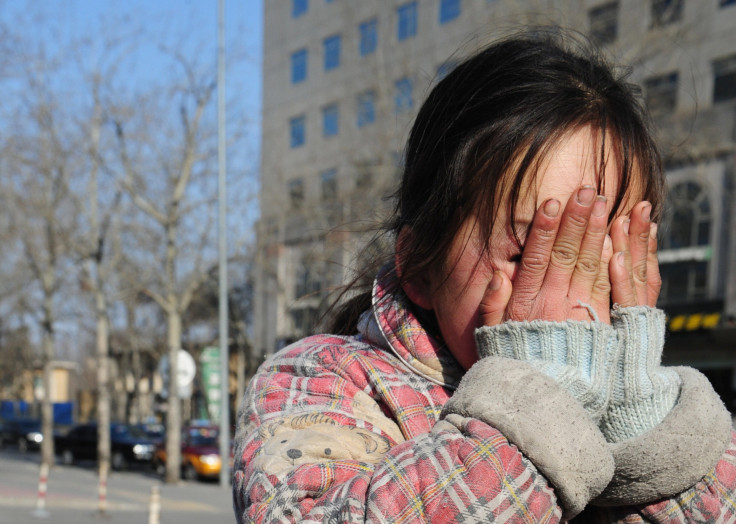China To Punish Buyers Of Trafficked Children, As Public Demand Stronger Action Against 'Rampant' Trade

SHANGHAI -- Trafficking in children is “rampant” in some parts of rural China, state media said Thursday, after the country’s legislature began considering a draft legal amendment that would see criminal punishment for those who buy children as well as those who abduct and/or sell them.
The kidnapping of children has become a major topic of debate in China recently -- with at least 3,000 cases cracked by police annually in recent years -- and many more cases unresolved. A recent exhibition of paintings of the face of missing children tugged at the heartstrings of many observers, and a call on several Chinese websites last week for the death penalty for anyone involved in child-trafficking was quickly backed by more than half a million people.
The phenomenon is particularly common in the countryside, where traditional beliefs that families should have a male heir have made some people willing to pay for abducted boys; children are also sold as potential spouses, or to work in coal mines, brick kilns or into begging gangs. The official Xinhua news agency said the trade was “especially” rampant in poverty-stricken regions of China’s far southwest.
The authorities have launched a series of campaigns against the trade, with around 13,000 people sentenced on child-trafficking charges between 2010 and 2014, China’s Supreme People’s Court said recently. However many citizens believe the punishments handed down have been too lax.
China’s criminal law currently stipulates a sentence of between five and 10 years in jail for child abduction and trafficking. If the crime involves more than three children, sexual abuse or the use of violence, traffickers may receive sentences ranging from 10 years to life, while the death sentence may be handed down in “especially serious circumstances.”
Yet while the death penalty has been used in some cases -- including those of two notorious traffickers who each abducted and sold more than 30 children -- almost half of those sentenced in the past five years received jail terms of no more than five years. And those who buy children have generally been considered exempt from criminal liability, provided they have treated the children well and release them to the authorities if they are found.
Some delegates to China’s legislature have described this a “glaring loophole,” and have backed the proposal that the buyers of children should also face criminal charges. Yet while the reforms have been described as a “big shift” by Chinese media, the proposals nevertheless stipulate that punishment for buyers who do not abuse children should be “light” -- assumed by experts to mean a sentence of no more than three years.
Some analysts said the relatively lenient sentences given to those involved in trafficking were a result of the relatively small amounts of money involved -- children can often be sold for just a few thousand dollars. And some impoverished parents have been known to sell their own children voluntarily to raise money. (Shanghai media recently reported the case of a man who sold his own son to pay a debt, before abducting him back to appease his wife.)
However public awareness of the issue has been fuelled by increasingly prominent coverage in Chinese media, and a series of campaigns on social media -- including the "Take a Photo, Save a Child" campaign launched by famous sociologist Yu Jianrong in 2012 -- which encouraged people to photograph children they see begging on the street, in case they have been abducted and sold to begging gangs.
At the same time some legal experts have warned against a kneejerk demand for harsh penalties for all those involved in the trade -- both because of the issue of parents who voluntarily sell their children -- and because, as law professor Qi Xiaoling put it recently, a uniform death penalty for child trafficking offenses could "increase the possibility that the trafficker turns to extreme approaches once exposed – such as killing the kidnapped child, to prevent police from finding the evidence of his crime."
And a commentary in the Southern Metropolis Daily on Thursday suggested that threatening to punish the buyers of abducted children alone will not be enough to stop the trade. It said the authorities needed to tackle the root of the large market for such children -- which was a lack of “regulated, reasonable and legal” channels for the adoption and fostering of children in China. It noted that under current rules, only people with no children of their own are allowed to foster a child, and they may only foster one child, while the process is extremely complicated.
© Copyright IBTimes 2024. All rights reserved.






















